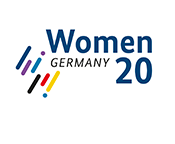Betterplace lab
Bridging the gender digital access gap
The internet has the potential to empower people worldwide - but only those who have access to, and the competencies and right offers to use it. Women are particularly affected by the digital divide and its exclusionary mechanisms.
In their study the betterplace lab examines gender specific barriers that prevent women from accessing and using digital technologies. A research team travelled to six countries in which socioeconomic development, levels of digitization and gender equality are fundamentally different: Brazil, Ethiopia, Germany, India, Indonesia and South Africa.
On the ground, they interviewed start-up founders about the significance and position of women on the digital maps of their countries and markets. They visited social enterprises and enquired into the specific opportunities for, and obstacles to, reaching women and girls via digital channels. They asked owners of initiatives and products, which aim at empowering women and girls, about particularily successful strategies. Additional interviews with policy experts served to contextualise the field reports in relation to current political, economic and sociocultural Frameworks.
The results of the survey present a source of knowledge about gender specific barriers to the access and use of digital Technology.
Based on those findings, the study provides specific policy recommendations for targeted and effective interventions that will foster the digital inclusion of women and girls.
Download the betterplace study (EN) here.
betterplace lab
The betterplace lab is a not-for-profit think-tank founded in 2009 in Berlin, Germany. It investigates the intersection of digital transformation and social good worldwide and is specialised in applied research in order to scout for tech-based solutions to social challenges and new trends in doing good with technology.
